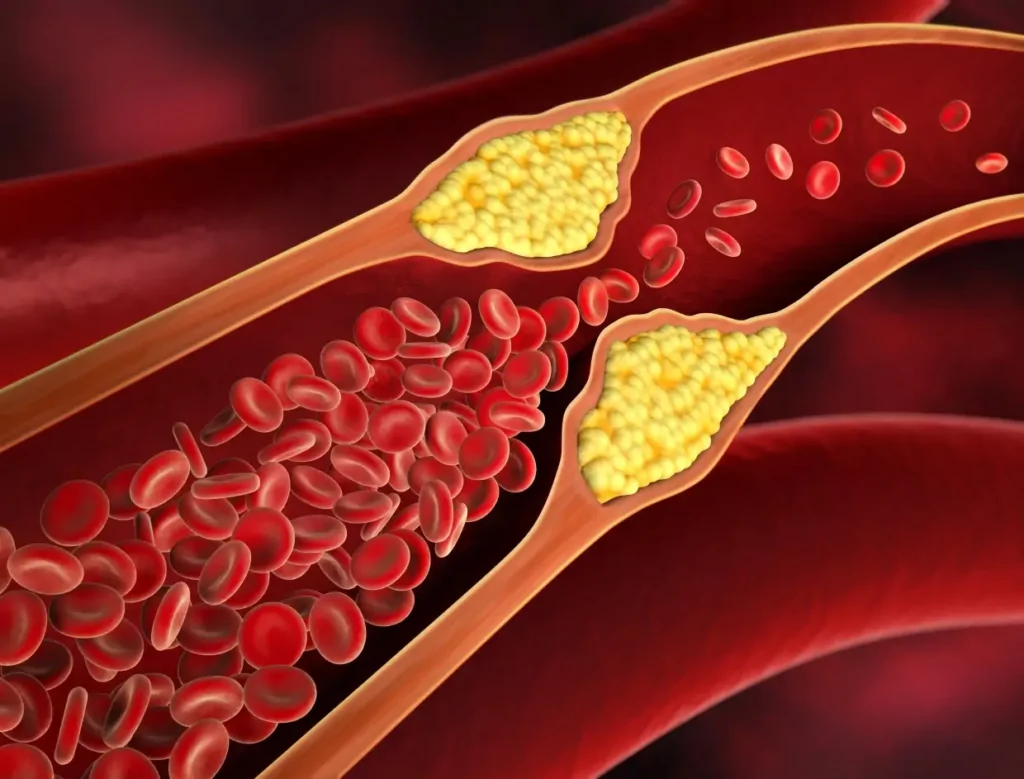Cholesterol management is the cornerstone of cardiovascular disease prevention. High LDL-cholesterol, often referred to as “bad cholesterol,” contributes to the buildup of fatty deposits in your arteries, increasing the risk of heart disease. Two new studies and an FDA approval over the last two weeks are showcasing the need for a more personalized approach to cholesterol and coronary disease risk management.
Low Dose Statin Plus Ezetimibe for Cardiometabolic Gain
Statins are widely used to lower cholesterol, but a known side effect is an increased risk for new-onset diabetes. Ezetimibe, an alternative to statins, has emerged as a hopeful player in the world of cholesterol management. A recent analysis of the IMPROVE-IT study found no increase in new-onset diabetes when adding ezetimibe to low dose simvastatin treatment.
Ezetimibe works differently from statins. While statins inhibit an enzyme in the liver to reduce the production of cholesterol, ezetimibe blocks the absorption of cholesterol in your intestines. The findings are consistent with a 2022 study that showed a decreased likelihood of new onset diabetes with lower dose rosuvastatin and ezetimibe versus higher dose rosuvastatin. This finding assures patients and doctors alike that using ezetimibe as an adjunct to low dose statins is safe and won’t increase diabetes risk. More importantly, from an obesity or cardiometabolic perspective, the evidence is suggesting that for people with BMI >25 and prediabetes, a low-moderate dose statin plus ezetimibe is preferred to high dose statin. This is a great example of why you should not select your cholesterol reduction strategy in isolation but rather consider the full cardiometabolic profile when selecting medication strategy.
No More Excuses: The Dawn of Bempedoic Acid
For those who cannot tolerate statins due to side effects like muscle pain, a new drug called bempedoic acid offers promise. This medication works by inhibiting ATP citrate lyase, an enzyme that plays a crucial role in the production of cholesterol in the liver.
A recent trial just presented at the ADA conference in San Diego showed that bempedoic acid significantly lowered LDL cholesterol levels and major adverse cardiovascular events, such as nonfatal heart attacks or strokes, in statin-intolerant patients. It achieved this without the muscular side effects commonly seen with statins, but did increase the incidences of gout and cholelithiasis (gallstones). Nonetheless, the drug opens a new avenue for patients who struggle with statin-related side effects. We can no longer use myalgias as an excuse to ignore that rising LDL.
Targeting Inflammation: A New pillar in the Treatment of Coronary Disease
While the focus on cholesterol lowering is paramount, inflammation plays a significant role in heart disease. For the first time, the FDA has approved an anti-inflammatory drug, colchicine, for reducing cardiovascular events in adults at risk of developing atherosclerotic cardiovascular disease (ASCVD).
Colchicine, traditionally used for treating gout, will be available under the brand Lodoco. It can be used alone or with standard lipid-lowering medications. The approval came in response to the LoDoCo2 trial which showed that Colchicine reduced the risk of cardiovascular events by a third in people with chronic coronary artery disease. Inflammation inhibition or reduction and LDL reduction should work synergistically, opening another pillar in cholesterol management. Inflammation reduction will be a growing therapeutic area over the next decade, in particular, for people who have their LDL cholesterol under control but are dealing with high levels of inflammation in the body, signified by a high CRP (C-reactive protein) levels.
A Personalized Approach
The news around ezetimibe, bempedoic acid, and colchicine is a testament to the rapid advancements in cardiometabolic medicine. They provide more options for personalized cholesterol management, offering hope to patients who cannot tolerate statins or require additional treatment. Moreover, these findings add to the growing list of cardiovascular disease risk reducers, joining the ranks of PCSK9 inhibitors like Alirocumab (Praluent) and Evolocumab (Repatha).
However, it’s crucial to remember that drugs alone cannot secure optimum heart health. A comprehensive risk reduction plan is like a symphony, requiring all elements to work in harmony to produce beautiful music. This plan should ideally include a focus on reducing visceral fat — the harmful fat stored around your organs, increasing your intake of vegetables, and incorporating regular exercise.
In conclusion, while these new studies and drugs add crucial tools to our heart health arsenal, the most impactful protection against heart disease is a holistic approach. It’s the melody created by the combined efforts of effective medication and a healthy lifestyle that will keep your heart beating strong for years to come.
If you’re interested in finding a care team, learn more about how Enara works with the latest cardiometabolic medications to customize a weight loss plan for you.
Medical providers: If you would like to refer your patients to a medically guided weight loss protocol, learn more about our medical provider referral program.
Clinics: If your clinic is looking to add obesity care to your services, check out our partner model.



